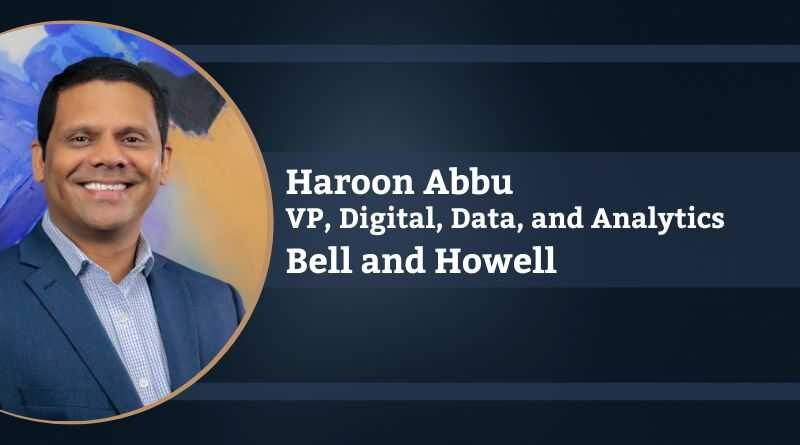Build Trust: A Call to Action for Digital Leaders
By Haroon Abbu, Vice President, Digital, Data, and Analytics, Bell and Howell and Paul Mugge, Executive Director (Emeritus), CIMS, North Carolina State University
The difference between the organizations that succeed in digital transformation and those that do not—or cannot—goes right back to the ability of their leaders to build and maintain the trust of their employees through these often-perilous journeys. The ability of these leaders to engender the trust of their employees allows them to accomplish digital transformation much faster and at much less cost to the organization. Leaders must develop certain enduring skillsets to build trust in order to lead in the digital age successfully.
No matter their titles, digital leaders are better defined by their ability to earn and build trust. While it is true that being proficient in the new technologies that drive digital transformation is important, we believe the enduring human traits far outweigh their proficiency in the ever-evolving field of digital technologies.
Without trust, leaders cannot manage a future that is being constantly disrupted, altered, and reinvented by digital trends.
Digital leadership is different from the traditional leadership approach. It requires the courage to take risks; the courage to go outside one’s own comfort zone and to embrace bold ideas without fear amidst all the ambiguity. Risk and Trust are intertwined; more trust leads to more risk-taking behaviors on the part of the trustor and the willingness to accept vulnerability based upon positive expectations of the intentions or behaviors of another.

At both the personal and the professional level, managers must develop certain enduring skills and internalize them to meet the challenges of the digital age. These include character and competency dimensions such as humility, integrity, honesty, courage, participative style, and the concepts of “Growth Mindset” or “Ethical use of AI and related technology.”
The concept of the “growth mindset” originates from psychology and the analysis of the development paths of school children. It is based on openness and trust and emphasizes the inherent development potentials and possibilities to grow beyond ourselves that exist in each of us. The key is to tap into these potentials. Many of the executives leading digital initiatives are not digital natives themselves, so their expertise may be limited, and therefore they must be open to learning from others. Without trust, leaders cannot create a growth mindset.
Ethical and responsible use of AI-enabled technologies is fundamental to corporations gaining and keeping the trust of their stakeholders—that is, customers, employees, and community—and to becoming trusted enterprises. Recent advances in machine learning and neural networks have enabled AI to be used in hiring, criminal justice, health care, and other sectors. The prevalence of AI in many industries has brought AI ethics to the forefront of digital leadership. “Ethical AI” emphasizes our responsibility to be extremely reflective about insights from data. Deriving insights from mere correlations are often too short-sighted. Cause and effect must always be questioned, and the context should also be taken into account. Otherwise, wrong decisions are made prematurely. Without trust, leaders cannot manage the ethical issues around new technologies like AI.
Trust is key for digital transformation. Trust enables companies to succeed in their communications, interactions, and decisions, and to move with incredible speed. To respond to changes with speed, leaders must empower their employees and create the conditions necessary for them to realize their capacity and power. Without trust, leaders cannot empower employees.
Often, leaders—and employees—involved in digitization find themselves in unchartered territory without concrete roadmaps, thus, the interaction between them is just as important as technological innovations. Trust is essential to manage through these disruptions. When leaders and employees are willing to be vulnerable, they are no longer preoccupied with self-protection and defensive behaviors, which leads to more substantial teams, improved flow of ideas, and enhanced overall results. Without trust, leaders cannot manage a future that is being constantly disrupted, altered, and reinvented by digital trends.
Resilient organizations are better prepared for digital disruption because resilient teams can respond to changes quickly. Without trust, employees tend to adhere to established ways of doing things. To develop a culture of resilience, leaders must demonstrate their own personal commitment to change. This trust will manifest in commitment to a growth mindset, open communication, empowerment to experiment, and acceptance of vulnerabilities. Without trust, leaders cannot build a resilient culture.
In our book, Trust: The winning formula for Digital Leaders, we chronicle how successful digital leaders demonstrate trust in their organizations and, by doing so, increase the confidence of their employees to embark on these often-risky initiatives. The ability to create trust is an essential ‘digital age’ leadership capability that leads to successful transformations.
BIOs
Dr. Haroon Abbu is Vice President of Digital, Data, and Analytics at Bell and Howell. An accomplished leader with expertise in leading technology enabled business transformation, Haroon leverages state-of-the-art technology to create positive customer-focused successes and strategically bring valuable data and analytics insights into vital elements of the business. He has vast experience in implementing and integrating enterprise applications, streamlining processes, and building digital and analytics products to enable employees and customers to obtain greater value from data and services. A recipient of multiple awards, including recognition in the 2022 Global Top 100 Innovators in Data and Analytics, 2022 Data Leader of the Year Finalist, he is a sought-after thought leader, keynote speaker at industry events, and coauthor of Trust: The Winning Formula for Digital Leaders, a Practical Guide for Digital Transformation.
Paul Mugge has 35 years’ experience in product development, global business strategy, and business innovation services at IBM and 15 years’ experience researching and teaching innovation as the executive director of North Carolina State University’s Center for Innovation Management. He is presently a member of the executive board of the presidium of FIR Institute for Industrial Management at RWTH Aachen University, Germany. He coauthored Traversing the Valley of Death and Trust: The Winning Formula for Digital Leaders.

